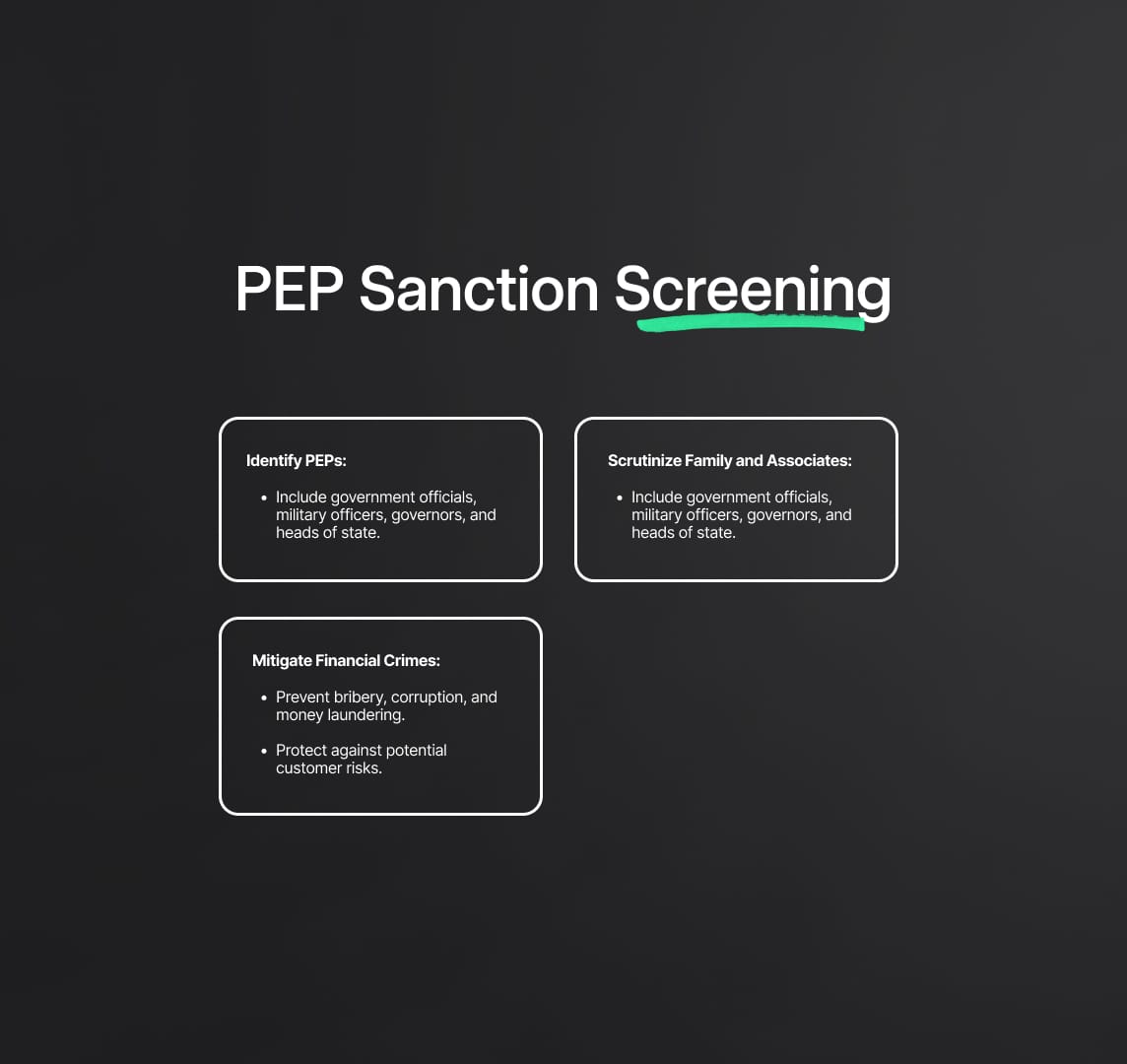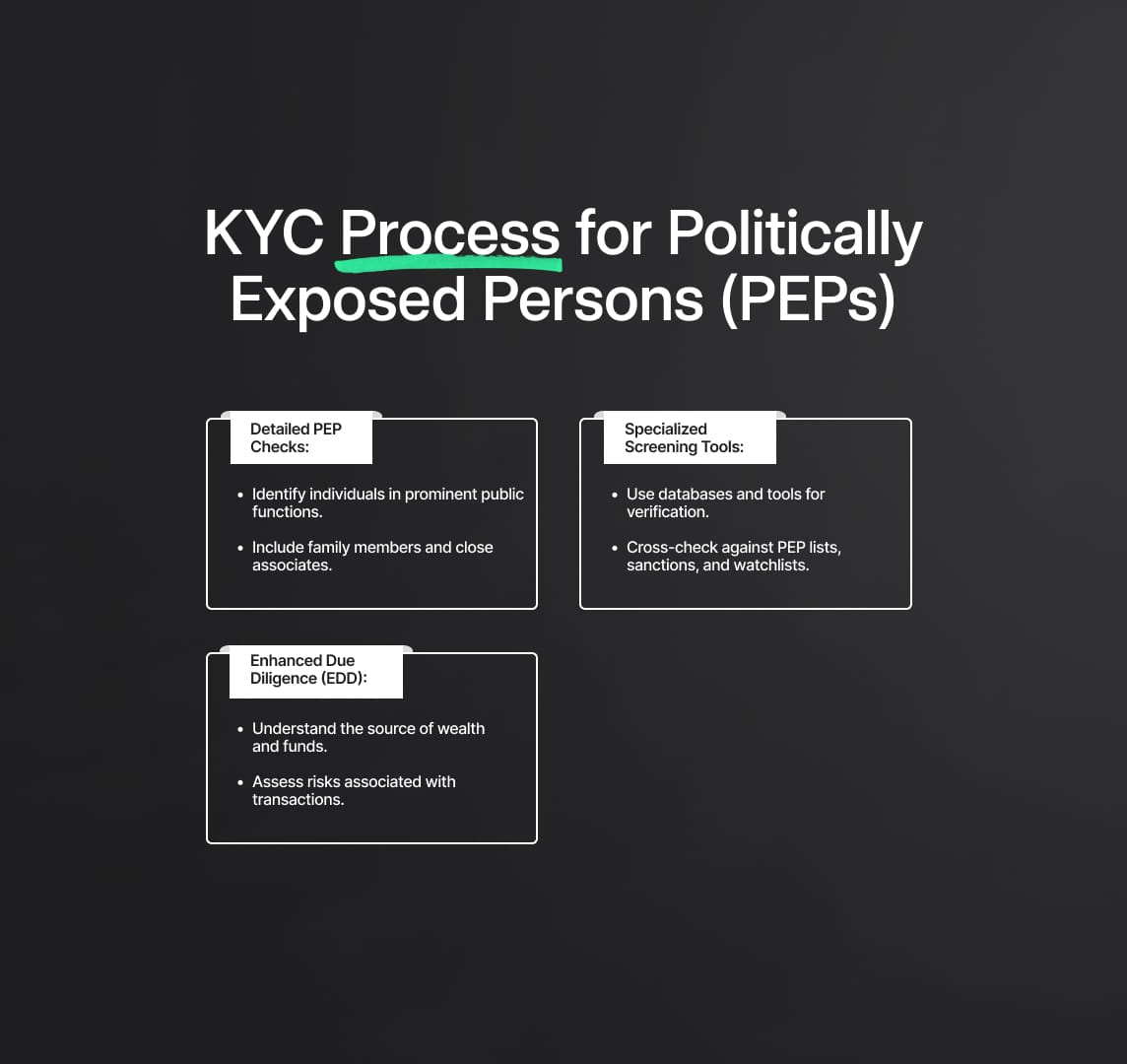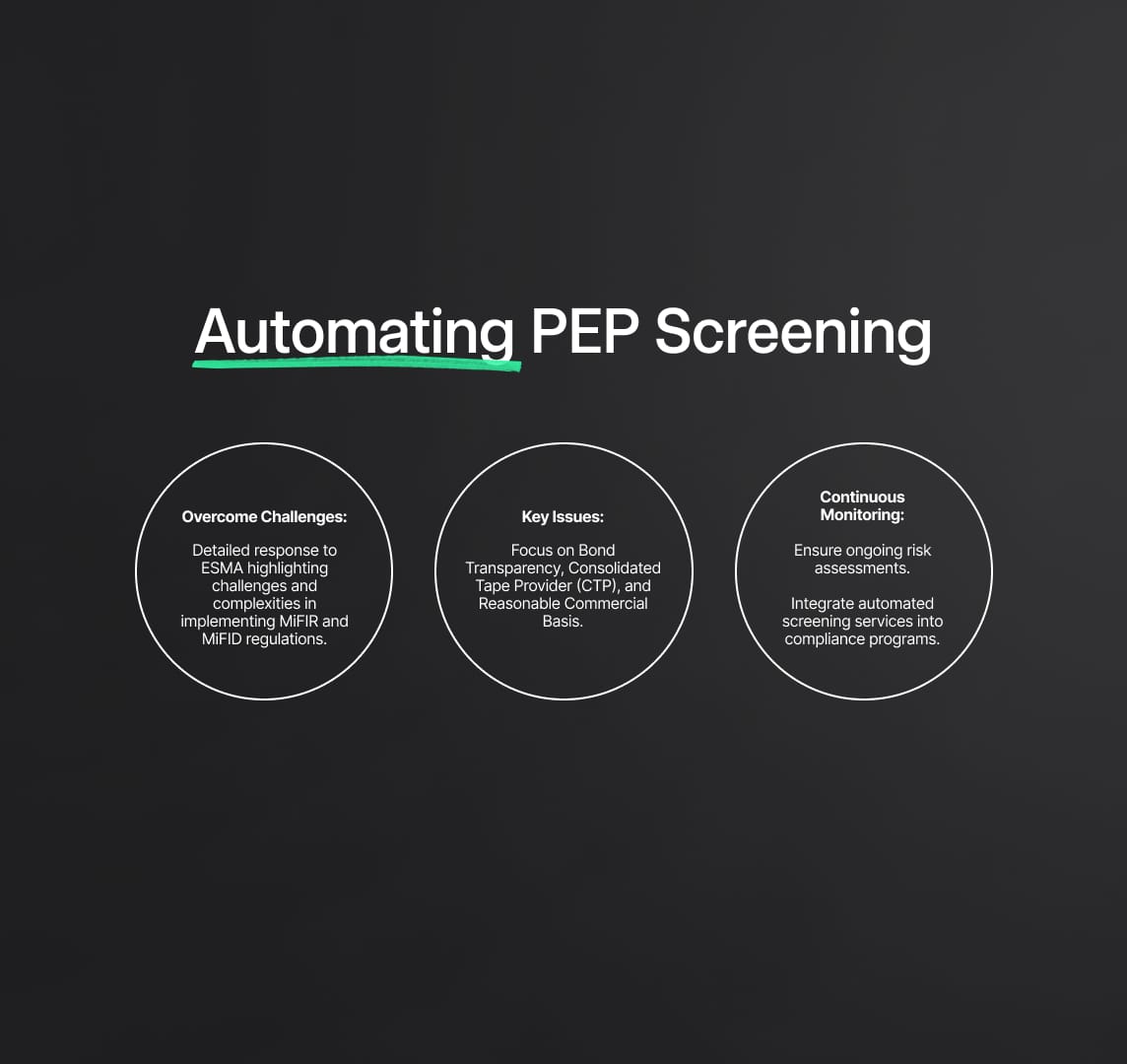How do firms manage the KYC of PEP?
Our focus in this article is the Know Your Customer (KYC) process for Politically Exposed Persons (PEPs). We will deep dive into the checks, tools, and compliance practices used to ensure regulatory adherence and risk mitigation in handling PEPs.

Grand “Answer”:
Firms manage the Know Your Customer (KYC) process for Politically Exposed Persons (PEPs) by performing detailed PEP and sanction checks during the onboarding of new customers. These checks help organizations identify individuals who are or have been entrusted with prominent public functions, as well as their family members and close associates [1]. To ensure accuracy and compliance, firms may use specialized databases and screening tools that facilitate verification against PEP lists, sanctions, and watchlists [2]. Furthermore, enhanced due diligence (EDD) is carried out for PEPs to better understand their source of wealth, source of funds, and assess the risks associated with their transactions [3]. By following these procedures, companies can effectively manage their KYC requirements for PEPs, mitigate risks, and comply with regulatory obligations.
[1]


PEP Sanction screening: enhance your KYC Process
Compliance professionals are acutely aware that penalties can be imposed not only for failure of existing compliance programs but also for inadequate measures.
Thus, industries subject to regulations must integrate comprehensive risk-based strategies into their Anti-Money Laundering (AML) programs. A significant component of these strategies is the process of scrutinizing Politically Exposed Persons (PEPs), an integral practice in the prevention of financial crimes like money laundering.

Who are the PEPs?
Politically Exposed Persons are individuals who, due to their high-ranking public roles, are considered potential conduits for illicit activities. These individuals may include government officials, military officers, governors, or even heads of state. Their elevated status makes them more susceptible to involvement in financial crimes such as bribery, corruption, and money laundering. Therefore, it is incumbent upon financial institutions and other regulated industries to engage in thorough scrutiny of these individuals, a process known as PEP screening.
PEP Screening: Main Steps
The screening process typically involves comparing client data against authoritative lists of PEPs, a task usually carried out by a Know Your Customer (KYC) specialist or a dedicated screening service. Such rigorous examination forms an integral part of the customer onboarding process and serves as a cornerstone of a company's due diligence procedure.
However, the risk of corruption and bribery extends beyond the individuals holding political office. Close associates and immediate family members of PEPs, as well as those entrusted with managing their finances, are also liable to exploit their connections for illicit gains.
Therefore, individuals linked to PEPs must also be subjected to enhanced due diligence, a requirement explicitly stated in AML compliance laws.
The process of screening PEPs serves as a bulwark against potential customer risks and is thus a vital cog in a risk-based AML program. Individuals in influential public positions are often entrusted with significant decision-making power over substantial financial resources and key infrastructure projects. Such authority, if unchecked, could be exploited for criminal purposes. Therefore, systematic and efficient screening of PEPs can aid financial institutions and law enforcement agencies in mitigating the risk of power abuse.

Prioritizing PEP Screening for AML
Failure to identify a client's status as a PEP or a PEP-affiliated person can result in severe regulatory fines. As such, businesses must engage in comprehensive and ongoing monitoring from the onset of any business relationship to avoid such repercussions.
The primary challenge faced during the PEP screening process is the absence of a comprehensive global PEP list. This shortcoming makes the due diligence process a complex and resource-intensive task. To alleviate this issue, many organizations are turning to automated KYC tools for streamlining the PEP screening process.
The use of such technology reduces the reliance on manual processes, enhances efficiency, and allows companies to focus on their core competencies.
The automation of the PEP screening process is an effective risk mitigation strategy. Given the fluid nature of PEP status, regulatory bodies require continuous risk assessments and monitoring. Automating this process ensures the real-time tracking of PEP status without the need for additional resources or the risk of human error. Companies, therefore, stand to gain significantly by integrating automated screening services, such as those offered by Ondato, into their compliance programs.
In summary, the screening of Politically Exposed Persons is an indispensable tool for maintaining robust AML programs. As we move forward, it will become increasingly important for organizations to integrate automated and innovative solutions into their compliance strategies. This integration will ensure that businesses can remain compliant, mitigate risks associated with PEPs, and focus on their primary operations.

Reduce your
compliance risks


